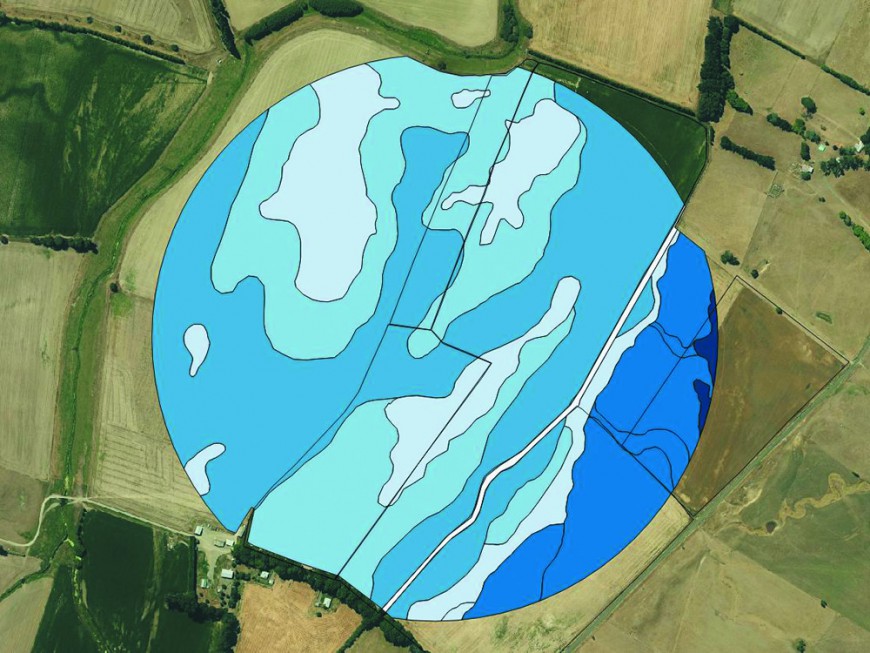
Long-term research from a rain shelter site is enabling precise irrigation scheduling at the paddock scale
In 2013 the MBIE-funded collaborative programme Maximising the Value of Irrigation (MVI), led by Manaaki Whenua, with Plant & Food Research and the Foundation for Arable Research (FAR), took on the challenge of creating new irrigation scheduling and management systems at the paddock scale. That programme is now drawing to a close, and the results are a step-change in irrigation management.
One group of MVI researchers used high-resolution sensor mapping and in-field soil and crop sensor monitoring systems to assist with precision irrigation, leading to water savings of between 9% and 30% when irrigation was varied according to the different soils at the site.
The sensor mapping system was trialled on six farms, where researchers processed the survey data into ‘management zones’ to record the main soil differences. The soil variability was then tested through physical soil sampling to measure how much water each soil zone could hold.
The team designed, built and used wireless sensor networks for near real-time monitoring at irrigation sites and sent this information via a smartphone app to the participating farmers to inform them of precise irrigation schedules and to monitor daily crop water usage.
Alongside the soil moisture research, another group of MVI researchers used remote-sensing methods to create a technique for monitoring daily crop water usage, to help calculate how much water a crop is using each day at the paddock scale.
MVI is applied science at its sharpest. The new irrigation scheduling and measurement systems developed as part of the programme will enable New Zealand’s farmers to make effective irrigation decisions to improve productivity, reduce costs, and lessen the negative environmental impacts of overwatering.
